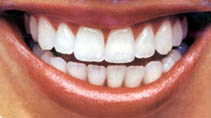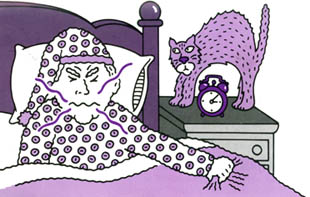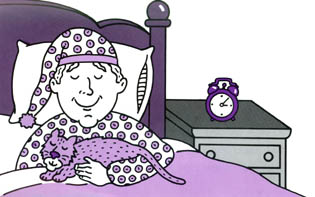|
|
|
![]()
Dental Outlook # 6
© Tomás Seif R. Odontólogo Universidad Central de
Venezuela Master of Science The University of Michigan,
USA e-mail: tseif@cantv.net,
Office numbers: (58-2) 992.02.42, 992.54.31,
992.78.09
Welcome to this section of the Dental Column.
Hopefully all our readers will enjoy it and have the opportunity to learn about the exciting advances and technologies that modern dentistry has to offer.
Do you grind your teeth?
If you wake up with dull headaches, vise-like
pain or sensitive teeth, you may be one of many
people that grind their teeth at night. Many people
are unaware they even have the disorder (called
bruxism) because it often occurs at night during
sleep. Your dentist, however, can usually detect
the telltale signs of wear on your teeth.
Problems caused by bruxism
Bruxism can either directly or indirectly cause many problems. Grinding can cause teeth to become painful or even loose. Patients can literally grind away parts of their teeth, leaving them with worn surfaces or fractured enamel. Sometimes, severe bruxism can be heard by the "grinders" sleeping partner and can become an interference with his/her normal sleeping patterns.
Causes of bruxism
More research is needed to determine the exact causes of bruxism, but it is thought that both emotional and physical factors are involved. Some of the contributing factors may be stress or sleep disorders, an abnormal bite, crooked or missing teeth.
Treatment of bruxism
There are a number of ways to treat bruxism. Your dentist will determine which single or combination treatments is right for you. When stress is the major cause of bruxism, people need to find ways to relax. People who have difficulty handling stress may need to seek counseling or the dentist may prescribe muscle relaxants to relax jaw muscles. To help alleviate muscle pain, physical therapy may be needed.
The following tips can be helpful to prevent grinding:
* Practice aerobical sports frequently. Tennis, squash, aerobics or any other distracting or relaxing activity.
* Insert resting periods during your daily working hours.
* To help brake the habit, place reminders around the house, or try repeating phrases that help you relax.
* To help relax clenching muscles, apply a warm wash cloth to the side of your face.
* To relieve stress, cut down on caffeine, take warm baths and ease up on yourself.
Because it is thought that an abnormal bite may trigger a persons' grinding habit, treatment may involve removing "high spots" of a tooth. Another treatment involves using a hard plastic mouth guard at night to protect teeth from wearing. This plastic device prevents teeth from coming together during the grinding movements of the jaw.
If teeth are already damaged by severe grinding, treatment could involve reshaping or reconstruction of the worn down biting surfaces of teeth. This is done using restorations such as onlays or crowns made with very resistant materials.
Grinding is a common occurrence among many
people at some time or another. If you develop
facial pain, fatigue or other problems, treatment
may be needed. There are dentists that have special
training in treating facial pain disorders. Talk
with your dentist if you suspect that you are
grinding your teeth. Your dentist will help to
relieve you from the daily grind of bruxism and
sometimes will choose to refer you to a facial pain
specialist.
I am looking forward to update you with more interesting information about modern dentistry.
Es nuestro interés que la información incluida en esta página sea de su ayuda. Si tiene alguna pregunta puede envíarnos un correo electrónico, o si desea que incluyamos algún tópico en particular en esta sección puede contáctarnos a través de nuestro libro de visitas.


